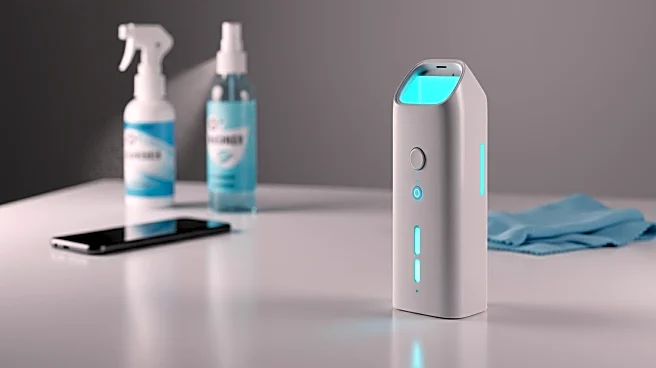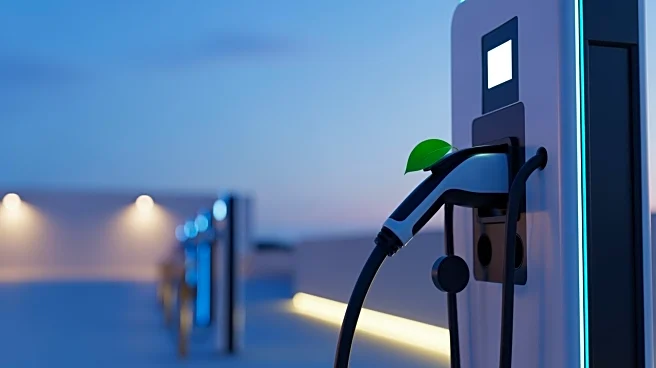What is the story about?
What's Happening?
Smartphones, often carried everywhere, can harbor more germs than a toilet seat, according to studies. Despite this, many people neglect to clean their phones regularly, potentially spreading bacteria. The Federal Communications Commission recommends daily disinfection, but warns against using harsh chemicals that can damage the phone's protective coatings. Safe cleaning methods include using disinfectant wipes with 70% isopropyl alcohol or UV light products like PhoneSoap. Major phone manufacturers like Apple and Samsung provide guidelines for cleaning devices without causing harm.
Why It's Important?
Regular cleaning of smartphones is crucial for personal hygiene, especially in preventing the spread of germs and bacteria. As phones are frequently touched and come into contact with various surfaces, they can become vectors for disease transmission. Proper cleaning not only protects users' health but also maintains the functionality and longevity of the device. With increased awareness of hygiene due to the pandemic, understanding safe cleaning practices is more important than ever.
What's Next?
As awareness of smartphone hygiene grows, consumers may seek more information and products designed for safe cleaning. Manufacturers might develop new technologies or coatings that resist bacteria and make cleaning easier. Public health campaigns could emphasize the importance of regular phone cleaning as part of overall hygiene practices. Additionally, there may be increased demand for accessories that facilitate cleaning, such as antimicrobial cases or screen protectors.















